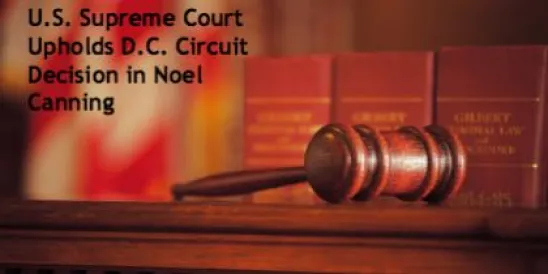In a previous post, we discussed corpus linguistics, an emerging tool in statutory and constitutional interpretation. It appears that the corpus linguistics bug is spreading, both in this Circuit and to other circuits as well. Two recent cases serve as a reminder that the Sixth Circuit is both a thought leader in analyzing and utilizing this new variant of legal analysis and is an increasingly powerful vector of transmission.
Consider Fulkerson v. UNUM Life Ins. Co. of Am., a Sixth Circuit opinion handed down a week ago. No. 21-3367, 2022 U.S. App. LEXIS 15363 (6th Cir. June 3, 2022). In Fulkerson, a panel consisting of Chief Judge Sutton and Judges Siler and Readler weighed whether reckless driving was a “crime” pursuant to the crime exclusion of an insurance policy. Id. at *4. Judge Readler penned the opinion. He concluded that reckless driving was a crime for the purposes of the insurance policy by looking to dictionaries and “the tapestry of state laws” regulating the conduct in question. Id. at *5-8. Following a belt and suspenders approach, Judge Readler also used corpus linguistics, “a helpful tool in assessing common usage” to support his conclusion that “[t]he contemporary common usage of the term ‘reckless driving’” “fits within the ordinary meaning of ‘crime.’” Id. at *8. As Judge Readler noted, “[a]lthough more commonly used in the constitutional and statutory interpretive settings, these resources seemingly have the same force in many contractual settings as well. Id. at *9 (citing Stephen C. Mouritsen, Contract Interpretation with Corpus Linguistics, 94 Wash. L. Rev. 1337, 1341 (2019)). Judge Readler then laid out the results of his analysis of the Corpus of Contemporary American English for the term “reckless driving” during the relevant time period. Id. at *10-13. “Tellingly, a vast majority recount instances in which some manner of prosecution occurred, where the individuals either were ‘charged,’ ‘convicted,’ and/or ‘sentenced for reckless driving” and others “explicitly refer[ed] to ‘reckless driving’ as a crime[.]” Id.
A few key takeaways:
-
Judge Readler’s analysis is consistent with our point in our last post: “corpus linguistics is not a silver bullet.” And, as Judge Thapar noted, “corpus linguistics is one tool . . . but not the whole toolbox.” Wilson v. Safelite Grp., Inc., 930 F.3d 429, 441 (6th Cir. 2019) (Thapar, J., concurring). If invoked, it will likely be used as evidence that supplements other more common interpretative modalities.
-
The makeup of this panel also shows the increased appetite for, or at least lack of aversion to, corpus linguistics analyses in this Circuit. Previously, Judges Thapar, Readler, and Griffin wrote or joined opinions relying, in part, on corpus linguistics. See United States v. Woodson, 960 F.3d 852, 855 (6th Cir. 2020) (6th Cir. 2020) (Judges Griffin and Thapar joining an opinion in which Judge Readler invoked corpus linguistics); Wilson v. Safelite Grp., Inc., 930 F.3d at 438 (Thapar, J., concurring) (invoking corpus linguistics in statutory analysis). We can now add Chief Judge Sutton and Judge Siler to this list. As a reminder, Judge Stranch penned a lengthy concurrence to her own opinion in Wilson v. Safelight expressing her concerns with using corpus linguistics. Id. at 445-48 (Stranch, J., concurring).
-
Before Fulkerson, corpus linguistics was typically used in the constitutional and statutory contexts. From what we can tell, this is the first time any federal court has applied corpus linguistics to a private contract. Corpus linguistics has officially entered the contracts arena, making understanding this tool all the more imperative for all lawyers.
Next, consider United States v. Rice, a Fourth Circuit opinion handed down yesterday. No. 19-4489, 2022 U.S. App. LEXIS 15886 (4th Cir. June 9, 2022). The Fourth Circuit was “asked to decide if the North Carolina crime of assault inflicting physical injury by strangulation is a ‘crime of violence’” for the purposes of sentencing enhancement under the U.S. sentencing guidelines. Id. at *1-3. We will not go into this case too deeply, but do note that they concluded strangulation was a crime of violence. It is notable, however, that Judge Quattlebaum, writing for the majority, cited to Judge Thapar’s concurring opinion in Wilson v. Safelight for the proposition that, “[a]lthough relatively new, corpus linguistics is gaining traction as an interpretive tool.” Id. at *10. Judge Thapar’s jurisprudence and this circuit’s continued use of corpus linguistics in tough cases will likely push other circuits to consider conducting corpus linguistics analyses as well. Moreover, this is the first instance that a corpus linguistics analysis was featured in a Fourth Circuit opinion, albeit in a footnote, to supplement the court’s analysis.
The corpus linguistics bug is spreading in our own Circuit and spreading to others. We recommend you read up on this tool of statutory, constitutional, and now contractual interpretation and will keep you updated on any interesting new developments.
Alon Farahan also contributed to this article.



 />i
/>i

